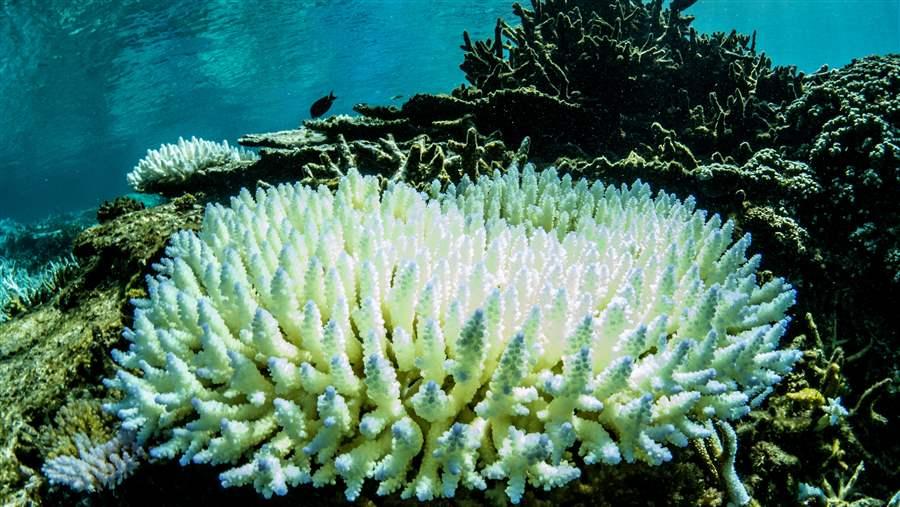Humans Can Ease Climate Change Impacts on Oceans, Experts Say
SOURCE: Pew Charitable Trusts/Polita Glynn April 27, 2017
While many people view climate change as an intangible and overwhelming problem, they can address its impacts on the oceans, chiefly through continued investment in innovative strategies for managing the seas and the life within them.
That is one conclusion of a new paper titled “Avoiding a Crisis of Motivation for Ocean Management Under Global Environmental Change” from a group of Pew marine fellows and other researchers.
Led by Peter Mumby from the University of Queensland and Jane Lubchenco from Oregon State University, the group reviewed evidence that climate change poses such a crisis because of how people typically respond to long-term, incremental change. Humans are wired to learn from personal experience, and thus many individuals avoid acting on what they perceive as long-range, diffuse, anticipated threats, such as climate change. This crisis can lead to reduced investment in resource management, monitoring, and enforcement.
Insights from case studies
Counteracting that trend requires a more flexible approach to finding solutions and responding to the inevitable surprises that ongoing research will reveal.
Through a series of case studies on climate change’s impact on marine ecosystems, the paper explores which variables might encourage or discourage further investments, and considers the possible consequences of those decisions. For instance, the worldwide decline of coral reefs is often perceived as management failure, even if climate change is one of the primary drivers of that deterioration. Yet science shows that human management of reef ecosystems can improve them.
In another case study, the authors consider management of fish stocks that are shifting their range in response to temperature changes. An economically rational response to such a shift is for people in a region that is losing fish to overexploit those declining stocks, while those in places where fish have increased might mistake migration for high productivity and overfish. But by treating the stock as a shared resource, both parties could help ensure a more sustainable outcome.
Other case studies in the paper explore expanded shipping through the Arctic due to the reduction of sea ice in the region as well as climate impacts on coastal habitats and those living in vulnerable areas.
Management challenges and options
The paper, which was published in the journal Global Change Biology, considers how management strategies can account for “climate surprises”—the gaps between expectations and actual events.
Technology, for example, can enable simulations that allow people to see what would happen under different environmental scenarios. Expanded monitoring and modeling can help provide early-warning signs of impending change and assist fisheries managers and others in preventing ecosystems from crossing critical thresholds. For example, by including additional variables in computer models, managers can better understand the benefits of various actions they could take under changing climates.
Reframing the problem
“Of the many surprises that we face with climate change, I hope that a proactive and strategic human response is among the greatest,” says Mumby. “Greater investment in ecosystem management does not mean more regulation, but smarter, more flexible approaches that better anticipate and respond to unexpected changes.”
Polita Glynn directs the Pew Fellows Program in Marine Conservation for The Pew Charitable Trusts.


